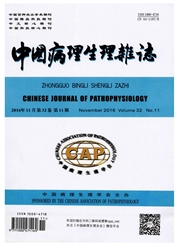

 中文摘要:
中文摘要:
目的:通过问卷调查浙江省过敏性疾病的诊断和治疗状况,包括治疗疾病的医生资源、诊断手段和特异性免疫治疗的开展情况,为将来过敏学科的发展提供真实可靠的信息。创新点:国内首次通过问卷调查,明确浙江省过敏性疾病的诊治现状,以期为未来发展学科的政策提供信息。方法:设计调查问卷,定义诊治过敏性疾病的医生。问卷按照不同的行政地区划分,分发到不同级别的医院,收集诊治过敏性疾病的医生和医院的全面信息,然后进行分析。结论:调查显示浙江省的过敏学科的发展还处于起始阶段,且存在地区间的发展不平衡。诊治过敏性疾病的医生主要来自五官科、呼吸科和小儿科,过敏原的诊断和特异性免疫治疗主要集中在省市级医院。今后过敏学科的继续教育可扩展至初级医疗保健机构,并对缺乏医学资源的地区加大资源投入。
 英文摘要:
英文摘要:
Background: The specialty of allergy developed quickly in western countries because of the rapid increase of allergic diseases, whereas it developed relatively slowly in China. The prevalence of allergen sensitization and allergic diseases in Zhejiang Province of China is high and improving the medical services for these diseases is critically needed. Objective: To investigate the working status of the diagnosis and treatment of allergic diseases, including doctor resources, diagnostic methods, and allergen-specific immunotherapy in patients of Zhejiang Province, and to provide instructions for the strategic development of subspecialties of allergic diseases. Methods: First we defined the doctors who treat allergic diseases, and designed a comprehensive questionnaire to collect personal and hospital information for these doctors. The questionnaires were distributed to hospitals with different ranks and from different areas in the province. The general condition of doctor's resources, carryout of diagnostic methods, and allergen-specific immunotherapy were described and variations in the different specialties, hospitals, and areas were further analyzed. Results: Doctors in their thirties with bachelor's degrees were the mainstream for diagnosing and treating allergic diseases. The main specialties of the doctor resources were the specialties of Ear, Nose and Throat(ENT), Respirology, Pediatrics, and Dermatology. The Pediatrics specialty had a more reasonable infrastructure of doctor resources with more young doctors working in this subspecialty. The development of allergy subspecialty varied within hospitals at different levels or from different areas. The carryout of the skin prick test(SPT), serum specific Ig E(ss Ig E), and subcutaneous immunotherapy(SCIT) was best performed in provincial hospitals, while sublingual immunotherapy(SLIT) was prescribed most commonly in municipal hospitals. The performance of SPT and ss Ig E in Hangzhou, Jiaxing, and Wenzhou areas was much better th
 同期刊论文项目
同期刊论文项目
 同项目期刊论文
同项目期刊论文
 期刊信息
期刊信息
